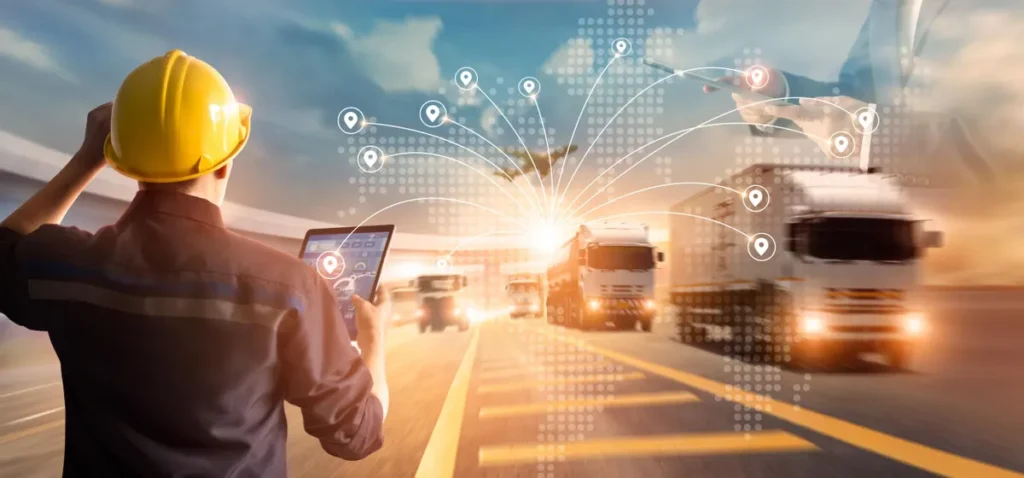
Globalization has opened up new opportunities for businesses to flourish beyond international borders. The logistics and supply chain management industry has been one of the primary beneficiaries of this trend. However, to operate seamlessly across nations, the industry must keep up with the pace of technological advancements. The logistics industry plays a vital role in contributing to the economy and increasing bilateral trade, which is why it is essential for it to be efficient enough to transport products smoothly and quickly.
Artificial Intelligence (AI) has become an indispensable part of specific industries, and supply chain firms are expected to witness a two-fold increase in machine automation in their supply chain activities over the next five years, according to Gartner. The principles of AI and analytics are also being applied to the booming IoT industry in supply chains.
The logistics industry involves the entire process of supply chain management, from procuring raw materials to distributing them. With the incorporation of AI in logistics, operational costs can be notably lowered, and productivity and efficiency can be increased. Achieving a seamless user experience is as important in logistics and supply chain management as it is on the internet, and this can only be accomplished through digital transformation. Automating processes reduces the possibility of errors and delays and helps in predictive analysis to improve the processes.
The use of AI in transportation and logistics has been predominant. AI can trace and forecast the most efficient shipping route, and machines can predict the enterprise’s fastest and most cost-effective shipping routes using graph theory. AI has witnessed rapid growth and has become integral and indispensable to companies. It helps boost management capabilities and organize work in enterprises and startups.
Here are five ways AI is transforming logistics and transportation
- Route Optimization: AI algorithms analyze vast amounts of data, including traffic patterns, weather conditions, and delivery schedules, to optimize transportation routes. By dynamically adjusting routes in real-time, AI helps logistics companies minimize fuel consumption, reduce delivery times, and improve overall efficiency.
- Predictive Maintenance: Real-time monitoring of the health of vehicles and equipment is made possible by AI-powered predictive maintenance systems, which detect potential issues before they escalate into costly breakdowns. By analyzing data from sensors and IoT devices, AI algorithms can anticipate maintenance needs, schedule repairs proactively, and optimize fleet uptime.
- Supply Chain Management: AI enhances supply chain visibility and transparency by providing real-time insights into inventory levels, demand forecasts, and supplier performance. By analyzing historical data and market trends, AI algorithms optimize inventory levels, streamline procurement processes, and mitigate supply chain risks, ensuring timely delivery of goods and minimizing stockouts.
- Autonomous Vehicles: Autonomous vehicles, powered by AI, are transforming the transportation industry by reducing reliance on human drivers and improving safety and efficiency. From self-driving trucks for long-haul freight transportation to autonomous drones for last-mile delivery, AI-powered vehicles offer the potential to transform logistics operations and reshape the future of transportation.
- Customer Service And Experience: AI-powered chatbots and virtual assistants enhance customer service and experience in logistics and transportation. By leveraging natural language processing (NLP) and machine learning algorithms, AI chatbots provide real-time support to customers, track shipments, and address inquiries and complaints, improving communication and satisfaction levels.
These are just a few examples of how AI is revolutionizing logistics and transportation, driving efficiency, innovation, and competitiveness in the industry. As AI technology continues to evolve, its impact on the logistics and transportation sector is expected to grow exponentially, unlocking new opportunities and driving transformative change.